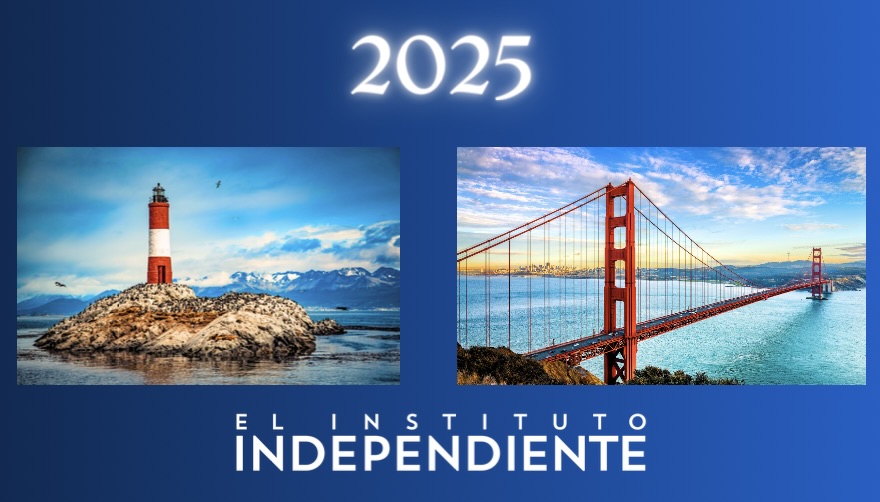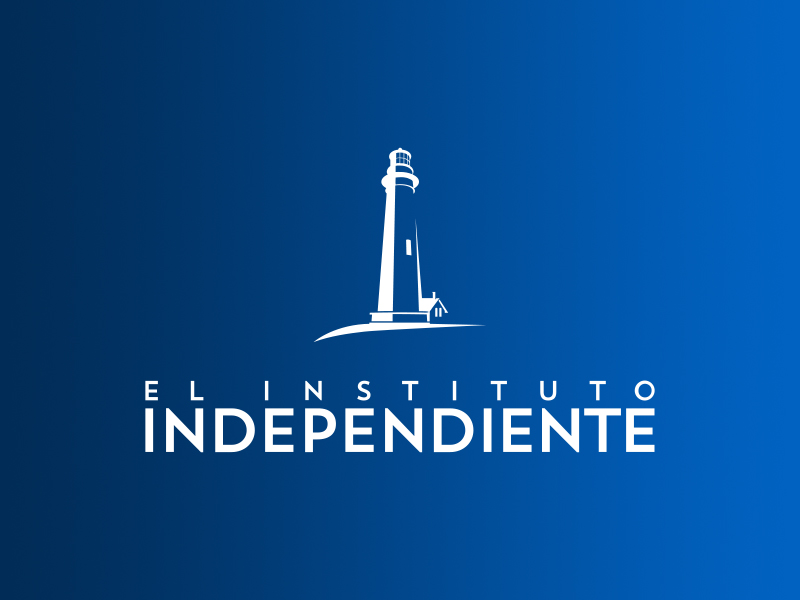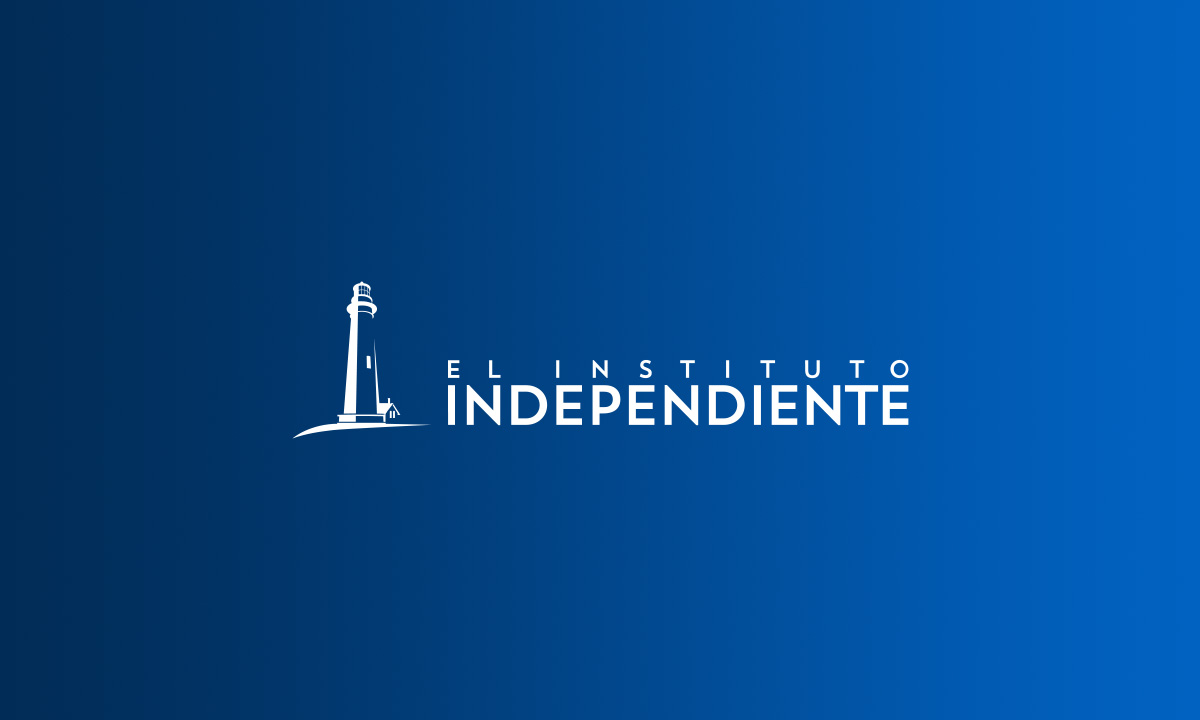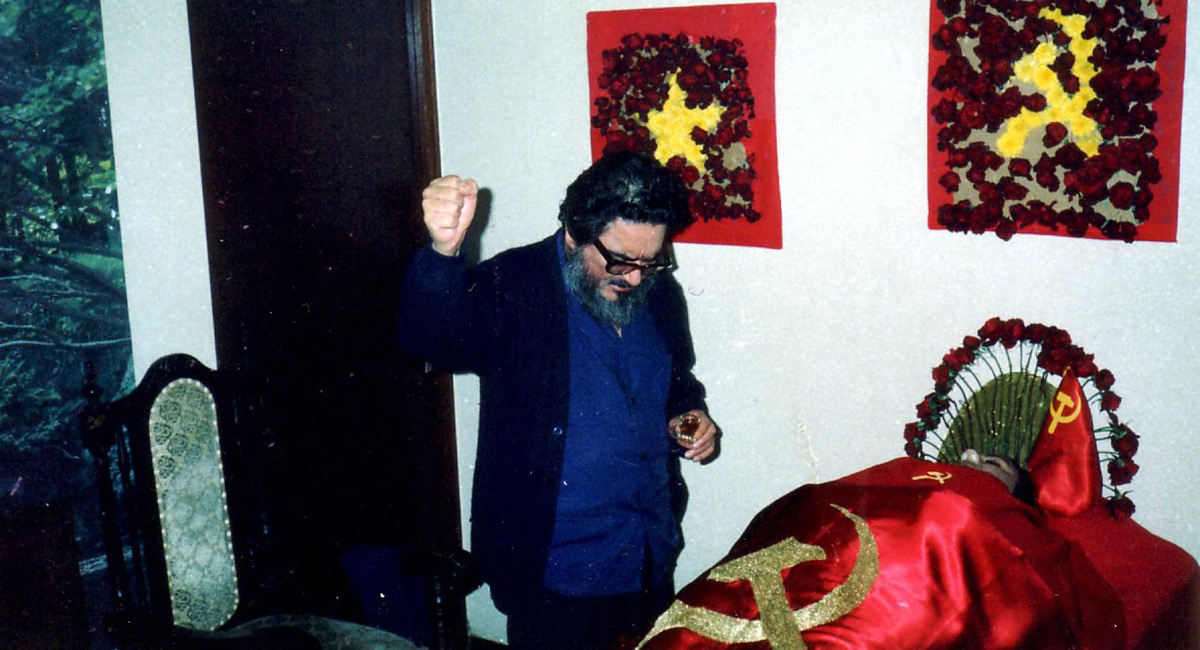Libros de ciencia para la economía y el liberalismo

Nota: este artículo complementa la charla "Ciencia y libertad: fundamentos científicos de los principios liberales”, que di en el Instituto Juan de Mariana el sábado 20 de octubre de 2018.
En el ámbito del liberalismo y de la economía de la Escuela austriaca abundan las fundamentaciones filosóficas y los estudios de historia del pensamiento: son escasos los intentos de apoyo y crecimiento en las ciencias naturales, tal vez por falta de interés y/o capacidad, por ser muchos investigadores gente de letras o humanidades. Esta desconexión es empobrecedora, frecuentemente sectaria, y facilita la infiltración por ideas falaces o absurdas (pseudociencias, supersticiones, conspiranoias). En lugar de enfatizar las diferencias para separar y trabajar de forma aislada, una actitud intelectual más fructífera y realista busca la consiliencia, la integración con otros ámbitos del conocimiento que sirvan para generar, apoyar o criticar ideas de forma interdependiente.
La praxeología separada de la psicología (apriorismo, dualismo metodológico) dice cosas ciertas e importantes, pero también vagas, genéricas, sin concretar, y ofrece descripciones y explicaciones muy incompletas de la realidad. Estudiar solamente la acción intencional implica obviar otros tipos de acción que puede ser muy relevantes. Tomar la intencionalidad de la acción humana como un axioma irrefutable cuya fundamentación no es necesario investigar puede llevar a ignorar que muchos otros seres vivos también actúan intencionalmente, y a no sentir la necesidad de explicar la existencia de lo teleológico en un mundo físico causal, como si fuera un hecho bruto o un misterio imposible de resolver.
En mi formación académica tienen un fuerte peso las ciencias naturales. Mi trabajo de estudio e investigación me ha permitido ver que es posible integrar de forma consistente todos los ámbitos científicos, y que esto permite comprender mejor la realidad humana y las fortalezas y los problemas del liberalismo.
A continuación presento los autores y libros que me han servido para aprender en muy diversos ámbitos, para que sirvan como referencia y por si pueden ser de utilidad para otras personas interesadas en aprender sobre estos temas. Es una lista cuya organización es problemática por cómo escoger los temas y por cómo clasificar cada libro solo en uno cuando en realidad casi todos tratan de varios temas. Incluyo libros que aún no he leído o que o no he leído en su totalidad (marcados con un asterisco *), pero que considero importantes y tengo en cuenta para mis lecturas futuras. Algunas obras (por ejemplo, sobre filosofía o física) pueden ser menos relevantes para la economía y el liberalismo. No menciono de momento (en general) libros típicamente liberales austriacos (economía y ética), de teoría monetaria, banca y finanzas.
Se trata de una lista provisional e imperfecta que espero completar con más libros leídos o proyectos de lectura, recomendaciones de los más interesantes en cada ámbito, ideas clave, referencias a reseñas, resúmenes o debates, y materiales adicionales como sitios de internet, contenidos audiovisuales, cursos o artículos sobre los diversos temas (algunos aparecen con frecuencia en las recomendaciones de intelib.wordpress.com). No todos los libros son recomendables en el sentido de acertados: por ejemplo la literatura creacionista es una sucesión de errores, falacias y disparates, pero es conveniente leerla para conocerla. Algunos libros tienen menos conexión con las ciencias naturales (historia, política). Algunos libros tienen dos títulos por la diferencia entre la edición inglesa y la norteamericana.
Para empezar recomiendo dos autores que piensan y escriben muy bien y además son liberales: Matt Ridley y Michael Shermer. Con mucho gusto recibiré preguntas, comentarios, sugerencias o críticas de lectores interesados.
Filosofía / Philosophy
Julian Baggini, The Pig That Wants to Be Eaten: 100 Experiments for the Armchair Philosopher (The Pig That Wants to Be Eaten: And Ninety-Nine Other Thought Experiments)
Thomas Cathcart & Daniel Klein, Plato and a Platypus Walk into a Bar: Understanding Philosophy Through Jokes
Jostein Gaarder, El mundo de Sofía
Rebecca Newberger Goldstein, Plato at the Googleplex: Why Philosophy Won’t Go Away
Lou Marinoff, Plato, Not Prozac!: Applying Eternal Wisdom to Everyday Problems
Robert Nozick, Philosophical Explanations (*)
Matthew Stewart, The Truth About Everything: An Irreverent History of Philosophy
Física, Cosmología, Matemáticas / Physics, Cosmology, Mathematics
Edwin A. Abbott, Flatland: A Romance of Many Dimensions
Amir D.Aczel, Entanglement: The Greatest Mystery in Physics
Peter Atkins, The Creation
Peter Atkins, Four Laws That Drive the Universe (*)
John D. Barrow, Impossibility: The Limits of Science and the Science of Limits
John D. Barrow, The Book of Nothing: Vacuums, Voids, and the Latest Ideas about the Origins of the Universe
John D. Barrow, The Infinite Book: A Short Guide to the Boundless, Timeless and Endless
David Bohm, Wholeness and the Implicate Order
Bill Bryson, A Short History of Nearly Everything
William H. Calvin, How the Shaman Stole the Moon: The Search of Ancient Prophet-Scientists: From Stonehenge to the Grand Canyon (*)
Sean Carroll, From Eternity to Here: The Quest for the Ultimate Theory of Time
Sean Carroll, The Big Picture: On the Origins of Life, Meaning, and the Universe Itself
Peter Coveney & Roger Highfield, The Arrow of Time: A Voyage Through Science to Solve Time’s Greatest Mystery
Paul Davies, The Mind of God: The Scientific Basis for a Rational World
David Deutsch, The Fabric of Reality: The Science of Parallel Universes—and Its Implications
David Deutsch, The Beginning of Infinity: Explanations That Transform the World
Keith Devlin, Mathematics: The Science of Patterns: The Search for Order in Life, Mind and the Universe
Richard P. Feynman, “Surely You’re Joking, Mr. Feynman!” Adventures of a Curious Character
Richard P. Feynman, “What Do You Care What Other People Think?” Further Adventures of a Curious Character
Martin Gardner, Mathematical Magic Show: More Puzzles, Games, Diversions, Illusions and Other Mathematical Sleight-Of-Mind from Scientific American
Brian Greene, The Elegant Universe: Superstrings, Hidden Dimensions, and the Quest for the Ultimate Theory
Brian Greene, The Fabric of the Cosmos: Space, Time, and the Texture of Reality
Brian Greene, The Hidden Reality: Parallel Universes and the Deep Laws of the Cosmos (*)
Stephen Hawking, A Brief History of Time: From the Big Bang to Black Holes
Stephen Hawking & Leonard Mlodinow, The Grand Design
Jim Holt, Why Does the World Exist? An Existential Detective Story
Robert Kaplan, The Nothing That Is: A Natural History of Zero
Robert Kaplan & Ellen Kaplan, The Art of the Infinite: The Pleasures of Mathematics
Lawrence M. Krauss, A Universe From Nothing: Why There Is Something Rather Than Nothing
Lawrence M. Krauss, The Greatest Story Ever Told—So Far: Why Are We Here?
Lillian R. Lieber, Infinity: Beyond the Beyond the Beyond
Alan Lightman, The Accidental Universe: The World You Thought You Knew
Benoît B. Mandelbrot, The Fractal Geometry of Nature
Eli Maor, To Infinity and Beyond: A Cultural History of the Infinite
Martin Rees, Just Six Numbers: The Deep Forces That Shape the Universe
Carl Sagan, Cosmos
Charles Seife, Zero: The Biography of a Dangerous Idea
Lee Smolin, Three Roads To Quantum Gravity
Ian Stewart, The Problems of Mathematics
Ian Stewart, From Here to Infinity: A Guide to Today’s Mathematics
Steven Weinberg, The First Three Minutes: A Modern View Of The Origin Of The Universe
Steven Weinberg, Dreams of a Final Theory: The Scientist’s Search for the Ultimate Laws of Nature
Ciencia, Epistemología, Filosofía de la ciencia, Sociología de la ciencia / Science, Epistemology, Philosophy of Science, Sociology of Science
John Brockman, The Third Culture: Beyond the Scientific Revolution
John Brockman (ed.), What We Believe but Cannot Prove: Today’s Leading Thinkers on Science in the Age of Certainty
John Brockman (ed.), What Is Your Dangerous Idea? Today’s Leading Thinkers on the Unthinkable
John Brockman (ed.), This Will Change Everything: Ideas That Will Shape the Future
John Brockman (ed.), What Have You Changed Your Mind About?: Today’s Leading Minds Rethink Everything
John Brockman (ed.), This Will Make You Smarter: New Scientific Concepts to Improve Your Thinking
John Brockman (ed.), This Explains Everything: Deep, Beautiful, and Elegant Theories of How the World Works
John Brockman (ed.), This Idea Must Die: Scientific Theories That Are Blocking Progres
John Brockman (ed.), Know This: Today’s Most Interesting and Important Scientific Ideas, Discoveries, and Developments
Michael Brooks, At the Edge of Uncertainty: 11 Discoveries Taking Science by Surprise
Richard Dawkins, The Magic of Reality: How We Know What’s Really True
Richard Dawkins, Unweaving the Rainbow: Science, Delusion and the Appetite for Wonder
Richard Dawkins, Science in the Soul: Selected Writings of a Passionate Rationalist
Peter Godfrey-Smith, Theory and Reality: An Introduction to the Philosophy of Science
Stephen Jay Gould, The Hedgehog, the Fox & the Magister’s Pox: Mending the Gap Between Science & the Humanities (*)
Friedrich A. Hayek, The Counter-Revolution of Science: Studies on the Abuse of Reason
Terence Kealey, Sex, Science and Profits: How People Evolved to Make Money
Thomas S. Kuhn, The Structure of Scientific Revolutions
Jean-Marc Lévy-Leblond, Conceptos contrarios o El oficio de científico
Mario Livio, Brilliant Blunders: From Darwin to Einstein – Colossal Mistakes by Great Scientists That Changed Our Understanding of Life and the Universe
Mario Livio, Why? What Makes Us Curious
Samir Okasha, Philosophy of Science: A Very Short Introduction
Robert M. Pirsig, Zen and the Art of Motorcycle Maintenance: An Inquiry into Values
Miguel Ángel Quintanilla, Fundamentos de lógica y teoría de la ciencia
Carl Sagan, The Demon-Haunted World: Science as a Candle in the Dark
Michael Shermer, Heavens on Earth: The Scientific Search for the Afterlife, Immortality, and Utopia
Andrew Shtulman, Scienceblind: Why Our Intuitive Theories About the World Are So Often Wrong
Edward O. Wilson, Consilience: The Unity of Knowledge
Sistemas / Systems
Adrian Bejan & J. Peder Zane, Design in Nature: How the Constructal Law Governs Evolution in Biology, Physics, Technology, and Social Organization
Ludwig von Bertalanffy, General System Theory: Foundations, Development, Applications
Redes / Networks
Albert-László Barabási, Linked: The New Science of Networks (How Everything Is Connected to Everything Else and What It Means for Business, Science, and Everyday Life)
Mark Buchanan, Nexus: Small Worlds and the Groundbreaking Theory of Networks
Nicholas A. Christakis & James H. Fowler, Connected: The Surprising Power of Our Social Networks and How They Shape Our Lives (Connected: How Your Friends’ Friends’ Friends Affect Everything You Feel, Think, and Do)
Niall Ferguson, The Square and the Tower: Networks, Hierarchies and the Struggle for Global Power (The Square and the Tower: Networks and Power, from the Freemasons to Facebook)
Alex Pentland, Social Physics: How Good Ideas Spread—The Lessons from a New Science (Social Physics: How Social Networks Can Make Us Smarter)
Duncan J. Watts, Six Degrees: The Science of a Connected Age
Complejidad / Complexity
Sunny Y. Auyang, Foundations of Complex-System Theories (in Economics, Evolutionary Biology, and Statistical Physics) (*)
Yaneer Bar-Yam, Making Things Work: Solving Complex Problems in a Complex World (*)
Eric D. Beinhocker, The Origin of Wealth: Evolution, Complexity, and the Radical Remaking of Economics
John L. Casti, Complexification: Explaining a Paradoxical World Through the Science of Surprise
Jack Cohen & Ian Stewart, The Collapse of Chaos: Discovering Simplicity in a Complex World
Murray Gell-Mann, The Quark and the Jaguar: Adventures in the Simple and the Complex
Brian Goodwin, How the Leopard Changed Its Spots: The Evolution of Complexity
John H. Holland, Hidden Order: How Adaptation Builds Complexity (*)
Roger Lewin, Complexity: Life at the Edge of Chaos
Melanie Mitchell, Complexity: A Guided Tour
John H. Miller, A Crude Look at the Whole: The Science of Complex Systems in Business, Life, and Society (*)
M. Mitchell Waldrop, Complexity: The Emerging Science at the Edge of Order and Chaos
Stephen Wolfram, A New Kind of Science (*)
Caos / Chaos
Albert-László Barabási, Bursts: The Hidden Pattern Behind Everything We Do
Antonio Escohotado, Caos y orden
Malcolm Gladwell, The Tipping Point: How Little Things Can Make a Big Difference
James Gleick, Chaos: Making a New Science
Edward Lorenz, The Essence of Chaos
Leonard Smith, Chaos: A Very Short Introduction
Ian Stewart, Does God Play Dice? The Mathematics of Chaos
Orden espontáneo, Autoorganización, Emergencia / Spontaneous Order, Self-organization, Emergence
Philip Ball, The Self-Made Tapestry: Pattern Formation in Nature
Philip Ball, Nature’s Patterns: A Tapestry in Three Parts (Branches)
Philip Ball, Nature’s Patterns: A Tapestry in Three Parts (Flows)
Philip Ball, Nature’s Patterns: A Tapestry in Three Parts (Shapes)
Ori Brafman & Rod A. Beckstrom, The Starfish and the Spider: The Unstoppable Power of Leaderless Organizations
Paul Davies, The Cosmic Blueprint: New Discoveries in Nature’s Creative Ability to Order the Universe
John H. Holland, Emergence: From Chaos To Order (*)
Steven Johnson, Emergence: The Connected Lives of Ants, Brains, Cities, and Software
Stuart Kauffman, The Origins of Order: Self-Organization and Selection in Evolution (*)
Stuart Kauffman, At Home in the Universe: The Search for the Laws of Self-Organization and Complexity
Stuart Kauffman, Investigations
Stuart Kauffman, Humanity in a Creative Universe (*)
Stuart Kauffman, Reinventing the Sacred: A New View of Science, Reason, and Religion (*)
Harold J. Morowitz, The Emergence of Everything: How the World Became Complex
Rafael Rubio de Urquía, Francisco José Vázquez, Félix Fernando Muñoz Pérez (eds.), Procesos de autoorganización (*)
Steven Strogatz, Sync: The Emerging Science of Spontaneous Order
Simetría / Symmetry
Ian Stewart, Why Beauty Is Truth: A History of Symmetry
Hermann Weyl, Symmetry
Escala / Scale
Geoffrey West, Scale: The Search for Simplicity and Unity in the Complexity of Life, from Cells to Cities, Companies to Ecosystems, Milliseconds to Millennia (Scale: The Universal Laws of Growth, Innovation, Sustainability, and the Pace of Life in Organisms, Cities, Economies, and Companies)
Aleatoriedad / Randomness
Robert H. Frank, Success and Luck: Good Fortune and the Myth of Meritocracy
Leonard Mlodinow, The Drunkard’s Walk: How Randomness Rules Our Lives
David Ruelle, Chance and Chaos
Nassim Nicholas Taleb, Fooled by Randomness: The Hidden Role of Chance in Life and in the Markets
Nassim Nicholas Taleb, The Black Swan: The Impact of the Highly Improbable
Biología / Biology
Michael J. Benton, The History of Life: A Very Short Introduction
John Brockman, Life: The Leading Edge of Evolutionary Biology, Genetics, Anthropology, and Environmental Science
Alexander Graham Cairns-Smith, Seven Clues to the Origin of Life: A Scientific Detective Story
Paul Davies, The Fifth Miracle: The Search for the Origin and Meaning of Life
Christian de Duve, Vital Dust: The Origin and Evolution of Life on Earth (Vital Dust: Life as a Cosmic Imperative)
David Deamer, First Life: Discovering the Connections between Stars, Cells, and How Life Began
Paul G. Falkowski, Life’s Engines: How Microbes Made Earth Habitable
Richard Fortey, Life: An Unauthorised Biography (A Natural History of the First Four Thousand Million Years of Life on Earth)
Peter M. Hoffmann, Life’s Ratchet: How Molecular Machines Extract Order from Chaos
Andrew H. Knoll, Life on a Young Planet: The First Three Billion Years of Evolution on Earth
Nick Lane, The Vital Question: Why Is Life the Way It Is?
James E. Lovelock, Gaia: A New Look at Life on Earth
Humberto Maturana R. & Francisco J. Varela G., Autopoiesis and Cognition: The Realization of the Living
Humberto Maturana R. & Francisco J. Varela G., The Tree of Knowledge: The Biological Roots of Human Understanding
Ernst Mayr, The Growth of Biological Thought: Diversity, Evolution, and Inheritance (*)
Johnjoe McFadden & Jim Al-Khalili, Life on the Edge: The Coming of Age of Quantum Biology
Jacques Monod, Chance and Necessity: An Essay on the Natural Philosophy of Modern Biology (*)
Michel Morange, Life Explained
Addy Pross, What is Life? How Chemistry Becomes Biology
Michael L. Rothschild, Bionomics: Economy As Ecosystem
Adam Rutherford, Creation: The Origin of Life / The Future of Life (Creation: How Science Is Reinventing Life Itself)
Bill Schutt, Cannibalism: A Perfectly Natural History
Ian Stewart, Life’s Other Secret: The New Mathematics Of The Living World
Lewis Thomas, The Lives of a Cell: Notes of a Biology Watcher
Lewis Thomas, The Medusa and the Snail: More Notes of a Biology Watcher
David Toomey, Weird Life: The Search for Life That Is Very, Very Different from Our Own
Jonathan Weiner, Long for This World: The Strange Science of Immortality
Edward O. Wilson, The Future of Life
Exobiología (Vida extraterrestre) / Exobiology (Alien Life)
Jim Al-Khalili, Aliens: The World’s Leading Scientists on the Search for Extraterrestrial Life (Aliens: Science Asks Is Anyone Out There?)
Lewis Dartnell, Life in the Universe: A Beginner’s Guide
Paul Davies, The Eerie Silence: Renewing Our Search for Alien Intelligence (The Eerie Silence: Are We Alone in the Universe?)
Ben Miller, The Aliens Are Coming!: The Extraordinary Science Behind Our Search for Life in the Universe
Seth Shostak, Confessions of an Alien Hunter: A Scientist’s Search for Extraterrestrial Intelligence
Genética / Genetics
Kat Arney, Herding Hemingway’s Cats: Understanding how our Genes Work
David P. Barash, Revolutionary Biology: The New, Gene-Centered View of Life
Nessa Carey, The Epigenetics Revolution: How Modern Biology Is Rewriting Our Understanding of Genetics, Disease, and Inheritance
Sam Kean, The Violinist’s Thumb: And Other Lost Tales of Love, War, and Genius, as Written by Our Genetic Code
Richard C. Lewontin, Biology as Ideology: The Doctrine of DNA
Siddhartha Mukherjee, The Gene: An Intimate History
John Parrington, The Deeper Genome: Why There Is More to the Human Genome Than Meets the Eye
Matt Ridley, Genome: The Autobiography of a Species in 23 Chapters
Matt Ridley, Nature Via Nurture: Genes, Experience and What Makes Us Human (The Agile Gene: How Nature Turns on Nurture)
Evolución / Evolution
John Taylor Bonner, Randomness in Evolution
Sean B. Carroll, Endless Forms Most Beautiful: The New Science of Evo Devo and the Making of the Animal Kingdom
Sean B. Carroll, The Making of the Fittest: DNA and the Ultimate Forensic Record of Evolution
Jerry A. Coyne, Why Evolution Is True
Helena Cronin, The Ant and the Peacock: Altruism and Sexual Selection from Darwin to Today
Charles Darwin, On the Origin of Species
Richard Dawkins, The Selfish Gene
Richard Dawkins, The Extended Phenotype
Richard Dawkins, The Blind Watchmaker: Why the Evidence of Evolution Reveals a Universe without Design
Richard Dawkins, River out of Eden: A Darwinian View of Life
Richard Dawkins, Climbing Mount Improbable
Richard Dawkins, A Devil’s Chaplain: Reflections on Hope, Lies, Science, and Love (*)
Richard Dawkins, The Ancestor’s Tale: A Pilgrimage to the Dawn of Evolution
Richard Dawkins, The Greatest Show on Earth: The Evidence for Evolution
Daniel C. Dennett, Darwin’s Dangerous Idea: Evolution and the Meanings of Life
Stephen Jay Gould, Ever Since Darwin: Reflections on Natural History
Stephen Jay Gould, The Panda’s Thumb: More Reflections in Natural History
Stephen Jay Gould, Hen’s Teeth and Horse’s Toes: Further Reflections in Natural History
Stephen Jay Gould, The Flamingo’s Smile: Reflections in Natural History
Stephen Jay Gould, Wonderful Life: The Burgess Shale and the Nature of History
Stephen Jay Gould, Bully for Brontosaurus: Reflections in Natural History
Stephen Jay Gould, Eight Little Piggies: Reflections in Natural History
Stephen Jay Gould, Dinosaur in a Haystack: Reflections in Natural History
Stephen Jay Gould, Full House: The Spread of Excellence from Plato to Darwin
Stephen Jay Gould, Leonardo’s Mountain of Clams and the Diet of Worms: Essays on Natural History
Stephen Jay Gould, The Lying Stones of Marrakech: Penultimate Reflections in Natural History
Stephen Jay Gould, I Have Landed: The End of a Beginning in Natural History (*)
Eva Jablonka & Marion J. Lamb, Evolution in Four Dimensions: Genetic, Epigenetic, Behavioral, and Symbolic Variation in the History of Life
Greg Krukonis & Tracy Barr, Evolution For Dummies
Nick Lane, Life Ascending: The Ten Great Inventions of Evolution
Edward J. Larson, Evolution: The Remarkable History of a Scientific Theory
Ernst Mayr, What Evolution Is
Bill Nye, Undeniable: Evolution and the Science of Creation
Samir Okasha, Evolution and the Levels of Selection (*)
Matt Ridley, The Evolution of Everything: How New Ideas Emerge (The Evolution of Everything: How Small Changes Transform Our World)
Javier Sampedro, Deconstruyendo a Darwin: Los enigmas de la evolución a la luz de la nueva genética
Michael Shermer, Why Darwin Matters: The Case Against Intelligent Design
Matt Simon, The Wasp That Brainwashed the Caterpillar: Evolution’s Most Unbelievable Solutions to Life’s Biggest Problems
John Maynard Smith & Eörs Szathmáry, The Origins of Life: From the Birth of Life to the Origins of Language
Kim Sterelny, The Evolution of Agency and Other Essays
Steve Stewart-Williams, Darwin, God and the Meaning of Life: How Evolutionary Theory Undermines Everything You Thought You Knew
Rebecca Stott, Darwin’s Ghosts: The Secret History of Evolution
Ian Tattersall, Paleontology: A Brief History of Life
Andreas Wagner, Arrival of the Fittest: Solving Evolution’s Greatest Puzzle
Peter Ward & Joe Kirschvink, A New History of Life: The Radical New Discoveries about the Origins and Evolution of Life on Earth
George C. Williams, Adaptation and Natural Selection: A Critique of Some Current Evolutionary Thought (*)
Amotz Zahavi, The Handicap Principle: A Missing Piece of Darwin’s Puzzle
Crítica de la evolución / Criticism of Evolution
Rémy Chauvin, Darwinismo: El fin de un mito
Fernando Vallejo, La tautología darwinista y otros ensayos de biología
Creacionismo, Diseño Inteligente / Creationism, Intelligent Design
Michael J. Behe, Darwin’s Black Box: The Biochemical Challenge to Evolution (*)
Michael J. Behe, The Edge of Evolution: The Search for the Limits of Darwinism
Silvano Borruso, El evolucionismo en apuros
Sexo, género, reproducción, amor, celos, familia / Sex, Gender, Reproduction, Love, Jealousy, Family
David M. Buss, The Dangerous Passion: Why Jealousy is as Necessary as Love and Sex (*)
David P. Barash & Judith Eve Lipton, Making Sense of Sex: How Genes and Gender Influence Our Relationships
David P. Barash & Judith Eve Lipton, The Myth of Monogamy: Fidelity and Infidelity in Animals and People (*)
Jesse Bering, Perv: The Sexual Deviant in All of Us
Jared Diamond, Why Is Sex Fun? The Evolution of Human Sexuality
Robin Dunbar, The Science of Love and Betrayal
Cordelia Fine, Testosterone Rex: Myths of Sex, Science, and Society
Helen Fisher, Anatomy of Love: A Natural History of Mating, Marriage, and Why We Stray (Anatomy Of Love. The Natural History Of Monogamy, Adultery And Divorce)
Steven Horwitz, Hayek’s Modern Family: Classical Liberalism and the Evolution of Social Institutions
Bobbi S. Low, Why Sex Matters: A Darwinian Look at Human Behavior
Lynn Margulis & Dorion Sagan, Origins of Sex: Three Billion Years of Genetic Recombination
Robert Martin, How We Do It: The Evolution and Future of Human Reproduction
Ashley McGuire, Sex Scandal: The Drive to Abolish Male and Female
Cindy M. Meston & David M. Buss, Why Women Have Sex: Understanding Sexual Motivations from Adventure to Revenge (and Everything in Between)
Geoffrey Miller, The Mating Mind: How Sexual Choice Shaped the Evolution of Human Nature
Richard O. Prum, The Evolution of Beauty: How Darwin’s Forgotten Theory of Mate Choice Shapes the Animal World – And Us
Matt Ridley, The Red Queen: Sex and the Evolution of Human Nature
Joan Roughgarden, Evolution’s Rainbow: Diversity, Gender and Sexuality in Nature and People
Christopher Ryan & Cacilda Jethá, Sex at Dawn: The Prehistoric Origins of Modern Sexuality
Menno Schilthuizen, Nature’s Nether Regions: What the Sex Lives of Bugs, Birds, and Beasts Tell Us About Evolution, Biodiversity, and Ourselves
Paul Seabright, The War of the Sexes: How Conflict and Cooperation Have Shaped Men and Women from Prehistory to the Present
Etología / Ethology
Jennifer Ackerman, The Genius of Birds
Maddalena Bearzi & Craig B. Stanford, Beautiful Minds: The Parallel Lives of Great Apes and Dolphins
Marc Bekoff & Jessica Pierce, Wild Justice: The Moral Lives of Animals
Dorothy L. Cheney & Robert M. Seyfarth, Baboon Metaphysics: The Evolution of a Social Mind
Frans de Waal, Are We Smart Enough to Know How Smart Animals Are?
Frans de Waal, The Age of Empathy: Nature’s Lessons for a Kinder Society
Frans de Waal, The Bonobo and the Atheist: In Search of Humanism Among the Primates
Frans de Waal, Chimpanzee Politics: Power and Sex Among Apes (*)
Frans de Waal, The Ape and the Sushi Master: Reflections of a Primatologist (*)
Douglas J. Emlen, Animal Weapons: The Evolution of Battle
Peter Godfrey-Smith, Other Minds: The Octopus, the Sea, and the Deep Origins of Consciousness (Other Minds: The Octopus and the Evolution of Intelligent Life)
Temple Grandin & Catherine Johnson, Animals Make Us Human: Creating the Best Life for Animals
Bernd Heinrich, Mind of the Raven: Investigations and Adventures with Wolf-Birds
Bernd Heinrich, Winter World: The Ingenuity of Animal Survival
Bernd Heinrich, Summer World: A Season of Bounty
Jeffrey Moussaieff Masson, Beasts: What Animals Can Teach Us About the Origins of Good and Evil
Virginia Morell, Animal Wise: The Thoughts and Emotions of Our Fellow Creatures
Dale Peterson, The Moral Lives of Animals (*)
Carl Safina, Beyond Words: What Animals Think and Feel
Robert M. Sapolsky, A Primate’s Memoir: A Neuroscientist’s Unconventional Life Among the Baboons
Thomas D. Seeley, Honeybee Democracy
Peter Wohlleben, The Inner Life of Animals: Love, Grief, and Compassion—Surprising Observations of a Hidden World
Neurociencia, Consciencia, Inconsciente, Cerebro, Mente, Yo, Libre albedrío, Intencionalidad, Sentido / Neuroscience, Conscience, Unconscious, Brain, Mind, Self, Free Will, Intentionality, Meaning
Anil Ananthaswamy, The Man Who Wasn’t There: Investigations into the Strange New Science of the Self
Susan Blackmore, Consciousness: An Introduction
Susan Blackmore, Conversations on Consciousness (*)
Daniel Bor, The Ravenous Brain: How the New Science of Consciousness Explains Our Insatiable Search for Meaning
Pascal Boyer, Minds Make Societies: How Cognition Explains the World Humans Create (*)
William H. Calvin, The Throwing Madonna: Essays on the Brain (*)
William H. Calvin, The Cerebral Symphony: Seashore Reflections on the Structure of Consciousness (*)
William H. Calvin, How Brains Think: Evolving Intelligence, Then and Now(*)
William H. Calvin, The Cerebral Code: Thinking a Thought in the Mosaics of the Mind (*)
William H. Calvin & George A. Ojemann, Inside the Brain: Mapping the Cortex, Exploring the Neuron (*)
David J. Chalmers, The Conscious Mind: In Search of a Fundamental Theory
Patricia S. Churchland, Touching a Nerve: The Self as Brain (Touching a Nerve: Our Brains, Our Selves)
Michael C. Corballis, A Very Short Tour of the Mind: 21 Short Walks Around the Human Brain
Antonio Damasio, Self Comes to Mind: Constructing the Conscious Brain
Terrence W. Deacon, Incomplete Nature: How Mind Emerged From Matter
Stanislas Dehaene, Consciousness and the Brain: Deciphering How the Brain Codes Our Thoughts
Daniel C. Dennett, Elbow Room: The Varieties of Free Will Worth Wanting
Daniel C. Dennett, Consciousness Explained
Daniel C. Dennett, Kinds of Minds: Toward an Understanding of Consciousness
Daniel C. Dennett, Brainchildren: Essays on Designing Minds
Daniel C. Dennett, Freedom Evolves
Daniel C. Dennett, Sweet Dreams: Philosophical Obstacles to a Science of Consciousness
Daniel C. Dennett, From Bacteria to Bach and Back: The Evolution of Minds
Daniel C. Dennett, Brainstorms: Philosophical Essays on Mind and Psychology (*)
Daniel C. Dennett, The Intentional Stance (*)
David Eagleman, Incognito: The Secret Lives of the Brain
David Eagleman, The Brain: The Story of You
Gerald M. Edelman, Wider Than the Sky: The Phenomenal Gift of Consciousness
Nicholas Epley, Mindwise: How We Understand What Others Think, Believe, Feel, and Want
R. Douglas Fields, The Other Brain: From Dementia to Schizophrenia, How New Discoveries about the Brain Are Revolutionizing Medicine and Science (The Other Brain: The Scientific and Medical Breakthroughs That Will Heal Our Brains and Revolutionize Our Health)
Viktor E. Frankl, Man’s Search for Meaning
Joaquín M. Fuster, The Neuroscience of Freedom and Creativity: Our Predictive Brain
Michael S. Gazzaniga, Who’s in Charge? Free Will and the Science of the Brain
Elkhonon Goldberg, The Executive Brain: Frontal Lobes and the Civilized Mind
Michael S. A. Graziano, Consciousness and the Social Brain
Sam Harris, Free Will
Douglas R. Hofstadter, I Am a Strange Loop
Douglas R. Hofstadter & Daniel C. Dennett, The Mind’s I: Fantasies and Reflections on Self and Soul
Bruce Hood, The Self Illusion: How the Social Brain Creates Identity
Bruce Hood, The Domesticated Brain
Matthew M. Hurley, Daniel C. Dennett & Reginald B. Adams Jr., Inside Jokes: Using Humor to Reverse-Engineer the Mind
Steven Johnson, Mind Wide Open: Your Brain and the Neuroscience of Everyday Life
Alicia Juarrero, Dynamics in Action: Intentional Behavior as a Complex System
Michio Kaku, The Future of the Mind: The Scientific Quest to Understand, Enhance, and Empower the Mind
Sam Kean, The Tale of the Dueling Neurosurgeons: The History of the Human Brain as Revealed by True Stories of Trauma, Madness, and Recovery
Christof Koch, Consciousness: Confessions of a Romantic Reductionist
Arthur Koestler, The Ghost in the Machine
Jonah Lehrer, Proust Was a Neuroscientist
Rita Levi-Montalcini, La galaxia mente
Matthew D. Lieberman, Social: Why Our Brains Are Wired to Connect
Facundo Manes & Mateo Niro, Usar el cerebro: Conocer el cerebro para vivir mejor
Iain McGilchrist, The Master and His Emissary: The Divided Brain and the Making of the Western World
Thomas Metzinger, The Ego Tunnel: The Science of the Mind and the Myth of the Self
Marvin Minsky, The Society of Mind
Marvin Minsky, The Emotion Machine: Commonsense Thinking, Artificial Intelligence, and the Future of the Human Mind
Leonard Mlodinow, Subliminal: How Your Unconscious Mind Rules Your Behavior
Read Montague, Why Choose This Book?: How We Make Decisions
Roger Penrose, The Emperor’s New Mind: Concerning Computers, Minds and the Laws of Physics
Roger Penrose, Shadows of the Mind: A Search for the Missing Science of Consciousness
V. S. Ramachandran, The Tell-Tale Brain: A Neuroscientist’s Quest for What Makes Us Human
V. S. Ramachandran & Sandra Blakeslee, Phantoms in the Brain: Probing the Mysteries of the Human Mind (Phantoms in the Brain: Human Nature and the Architecture of the Mind) (*)
Oliver Sacks, Awakenings
Oliver Sacks, A Leg to Stand on
Oliver Sacks, The Man Who Mistook His Wife for a Hat and Other Clinical Tales
Oliver Sacks, Seeing Voices: A Journey into the World of the Deaf
Oliver Sacks, An Anthropologist on Mars: Seven Paradoxical Tales
Oliver Sacks, The Island of the Colorblind (*)
Oliver Sacks, Musicophilia: Tales of Music and the Brain (*)
Oliver Sacks, The Mind’s Eye
Oliver Sacks, Hallucinations
Oliver Sacks, The River of Consciousness
Sally L. Satel & Scott O. Lilienfeld, Brainwashed: The Seductive Appeal of Mindless Neuroscience
Sebastian Seung, Connectome: How the Brain’s Wiring Makes Us Who We Are
Daniel J. Siegel, The Neurobiology of “We”: How Relationships, the Mind, and the Brain Interact to Shape Who We Are
Mariano Sigman, The Secret Life of the Mind: How Your Brain Thinks, Feels, and Decides
Shankar Vedantam, The Hidden Brain: How Our Unconscious Minds Elect Presidents, Control Markets, Wage Wars, and Save Our Lives
Daniel M. Wegner, The Illusion of Conscious Will
Daniel M. Wegner & Kurt Gray, The Mind Club: Who Thinks, What Feels, and Why It Matters
Psicología evolucionista / Evolutionary Psychology
Jerome H. Barkow, Leda Cosmides & John Tooby (eds.), The Adapted Mind: Evolutionary Psychology and the Generation of Culture (*)
Paul Bloom, How Pleasure Works: The New Science of Why We Like What We Like
Dean Buonomano, Brain Bugs: How the Brain’s Flaws Shape Our Lives
Dean Burnett, Idiot Brain: What Your Head Is Really up to
Terry Burnham & Jay Phelan, Mean Genes (From Sex to Money to Food: Taming Our Primal Instincts)
Robin Dunbar, Louise Barrett & John Lycett, Evolutionary Psychology (A Beginner’s Guide): Human Behaviour, Evolution and the Mind
Douglas T. Kenrick, Sex, Murder, and the Meaning of Life: A Psychologist Investigates How Evolution, Cognition, and Complexity are Revolutionizing Our View of Human Nature
Douglas T. Kenrick & Vladas Griskevicius, The Rational Animal: How Evolution Made Us Smarter Than We Think
David J. Linden, The Accidental Mind: How Brain Evolution Has Given Us Love, Memory, Dreams, and God
David J. Linden, The Compass of Pleasure: How Our Brains Make Fatty Foods, Orgasm, Exercise, Marijuana, Generosity, Vodka, Learning, and Gambling Feel So Good
Gary Marcus, Kluge: The Haphazard Construction of the Human Mind
Geoffrey Miller, Spent: Sex, Evolution, and Consumer Behavior (Must-Have: The Hidden Instincts Behind Everything We Buy)
Steven Pinker, How the Mind Works
Evolución humana, naturaleza humana, antropología / Human Evolution, Human Nature, Anthropology
Gregory Bateson, Steps to an Ecology of Mind: Collected Essays in Anthropology, Psychiatry, Evolution, and Epistemology (*)
David P. Barash, Natural Selections: Selfish Altruists, Honest Liars, and Other Realities of Evolution
David P. Barash, Homo Mysterious: Evolutionary Puzzles of Human Nature
David P. Barash & Ilona A. Barash, The Mammal in the Mirror: Understanding Our Place in the Natural World
Jesse Bering, Why Is the Penis Shaped Like That? And Other Reflections on Being Human
William H. Calvin, The River That Runs Uphill: A Journey from the Big Bang to the Big Brain (*)
William H. Calvin, The Ascent of Mind: Ice Age Climates and the Evolution of Intelligence (*)
William H. Calvin, A Brain for All Seasons: Human Evolution and Abrupt Climate Change (*)
William H. Calvin, A Brief History of the Mind: From Apes to Intellect and Beyond (*)
David P. Clark, Germs, Genes, & Civilization: How Epidemics Shaped Who We Are Today
Frans de Waal, Our Inner Ape: A Leading Primatologist Explains Why We Are Who We Are
Jared Diamond, The Third Chimpanzee: The Evolution and Future of the Human Animal
Jared Diamond, The World Until Yesterday: What Can We Learn from Traditional Societies?
Brian Fagan, Cro-Magnon: How the Ice Age Gave Birth to the First Modern Humans
Michael S. Gazzaniga, Human: The Science Behind What Makes Your Brain Unique
Henry Gee, The Accidental Species: Misunderstandings of Human Evolution
Stephen Jay Gould, The Mismeasure of Man: The Definitive Refutation to the Argument of ‘The Bell Curve’
Judith Rich Harris, The Nurture Assumption: Why Children Turn Out the Way They Do
Judith Rich Harris, No Two Alike: Human Nature and Human Individuality(*)
Steven Johnson, Wonderland: How Play Made the Modern World
Christine Kenneally, The Invisible History of the Human Race: How DNA and History Shape Our Identities and Our Futures
Daniel J. Levitin, This Is Your Brain on Music: The Science of a Human Obsession
Daniel E. Lieberman, The Story of the Human Body: Evolution, Health, and Disease
Steven Mithen, The Prehistory of the Mind: The Cognitive Origins of Art, Religion and Science
Steven Mithen, The Singing Neanderthals: The Origins of Music, Language, Mind and Body
Leonard Mlodinow, The Upright Thinkers: The Human Journey from Living in Trees to Understanding the Cosmos
Desmond Morris, The Naked Ape: A Zoologist’s Study of the Human Animal
Desmond Morris, The Human Zoo
Svante Pääbo, Neanderthal Man: In Search of Lost Genomes
Steven Pinker, The Blank Slate: The Modern Denial of Human Nature
Steven Pinker, The Stuff of Thought: Language as a Window Into Human Nature
Colin Renfrew, Prehistory: The Making of the Human Mind
Robert M. Sapolsky, Behave: The Biology of Humans at Our Best and Worst
Helmut Schoeck, Envy: A Theory of Social Behaviour
Pat Shipman, The Invaders: How Humans and Their Dogs Drove Neanderthals to Extinction
Neil Shubin, Your Inner Fish: A journey into the 3.5-Billion-Year History of the Human Body
Scott Solomon, Future Humans: Inside the Science of Our Continuing Evolution
Ian Tattersall, The Strange Case of the Rickety Cossack: And Other Cautionary Tales from Human Evolution
William von Hippel, The Social Leap: The New Evolutionary Science of Who We Are, Where We Come From, and What Makes Us Happy (*)
Nicholas Wade, Before the Dawn: Recovering the Lost History of Our Ancestors
Nicholas Wade, A Troublesome Inheritance: Genes, Race and Human History
Chip Walter, Last Ape Standing: The Seven-Million-Year Story of How and Why We Survived
Frank R. Wilson, The Hand: How Its Use Shapes the Brain, Language, and Human Culture
Edward O. Wilson, On Human Nature
Edward O. Wilson, The Meaning of Human Existence
Bernard Wood, Human Evolution: A Very Short Introduction
Richard Wrangham, Catching Fire: How Cooking Made Us Human
Marlene Zuk, Paleofantasy: What Evolution Really Tells Us about Sex, Diet, and How We Live
Cibernética, Información, Computación / Cybernetics, Information, Computation
James Gleick, The Information: A History, A Theory, A Flood
César A. Hidalgo, Why Information Grows: The Evolution of Order from Atoms to Economies
Ray Kurzweil, The Age of Intelligent Machines
Norbert Wiener, Cybernetics: Or, Control and Communication in the Animal and the Machine (*)
Lenguaje / Language
Benjamin K. Bergen, Louder Than Words: The New Science of How the Mind Makes Meaning
William H. Calvin & Derek Bickerton, Lingua ex Machina: Reconciling Darwin and Chomsky with the Human Brain (*)
William H. Calvin & George A. Ojemann, Conversations with Neil’s Brain: The Neural Nature of Thought and Language (*)
Terrence W. Deacon, The Symbolic Species: The Co-evolution of Language and the Brain
Daniel L. Everett, Language: The Cultural Tool
Manuel García-Carpintero, Las palabras, las ideas y las cosas: Una presentación de la filosofía del lenguaje
Jonathan Gottschall, The Storytelling Animal: How Stories Make Us Human
Steven Pinker, The Language Instinct: How the Mind Creates Language
Julie Sedivy, Language in Mind: An Introduction to Psycholinguistics (*)
Julie Sedivy, Sold on Language: How Advertisers Talk to You and What This Says About You (*)
Cognición / Cognition
Andy Clark, Being There: Putting Brain, Body, and World Together Again
Andy Clark, Natural-Born Cyborgs: Minds, Technologies, and the Future of Human Intelligence
Andy Clark, Supersizing the Mind: Embodiment, Action, and Cognitive Extension
Malcolm Gladwell, Blink: The Power of Thinking Without Thinking
Jeff Hawkins with Sandra Blakeslee, On Intelligence
Friedrich A. Hayek, The Sensory Order: An Inquiry into the Foundations of Theoretical Psychology
Ray Kurzweil, How to Create a Mind: The Secret of Human Thought Revealed
Jonah Lehrer, How We Decide
Robert Rosen, Anticipatory Systems: Philosophical, Mathematical and Methodological Foundations
Emociones, afectos / Emotions, Affection
Lisa Feldman Barrett, How Emotions are Made: The Secret Life of the Brain
Antonio Damasio, Descartes’ Error: Emotion, Reason and the Human Brain
Antonio Damasio, The Feeling of what Happens: Body, Emotion and the Making of Consciousness
Antonio Damasio, Looking for Spinoza: Joy, Sorrow, and the Feeling Brain
Antonio Damasio, The Strange Order of Things: Life, Feeling, and the Making of Cultures
Gavin de Becker, The Gift of Fear: Survival Signals That Protect Us from Violence
Dylan Evans, Emotion: A Very Short Introduction
Giovanni Frazzetto, How We Feel: What Neuroscience Can and Can’t Tell Us about Our Emotions (Joy, Guilt, Anger, Love: What Neuroscience Can and Can’t Tell Us About How We Feel)
José Antonio Jáuregui, Cerebro y emociones: El ordenador emocional
Psicología moral / Moral Psychology
Richard D. Alexander, The Biology of Moral Systems
Larry Arnhart, Darwinian Natural Right: The Biological Ethics of Human Nature
David P. Barash & Judith Eve Lipton, Payback: Why We Retaliate, Redirect Aggression, and Take Revenge
Simon Baron-Cohen, The Science of Evil: On Empathy and the Origins of Cruelty
Paul Bloom, Just Babies: The Origins of Good and Evil
Christopher Boehm, Hierarchy in the Forest: The Evolution of Egalitarian Behavior
Christopher Boehm, Moral Origins: The Evolution of Virtue, Altruism, and Shame
Samuel Bowles, The Moral Economy: Why Good Incentives Are No Substitute for Good Citizens
Patricia Churchland, Braintrust: What Neuroscience Tells Us about Morality
Frans de Waal, Primates and Philosophers: How Morality Evolved
Frans de Waal, Good Natured: The Origins of Right and Wrong in Humans and Other Animals (*)
Michael Gazzaniga, The Ethical Brain: The Science of Our Moral Dilemmas
Joshua Greene, Moral Tribes: Emotion, Reason, and the Gap Between Us and Them
Jonathan Haidt, The Righteous Mind: Why Good People Are Divided by Politics and Religion
Sam Harris, The Moral Landscape: How Science Can Determine Human Values
Marc Hauser, Moral Minds: How Nature Designed Our Universal Sense of Right and Wrong
Richard Joyce, The Evolution of Morality
Larissa MacFarquhar, Strangers Drowning: Grappling with Impossible Idealism, Drastic Choices, and the Overpowering Urge to Help
Donald W. Pfaff, The Neuroscience of Fair Play: Why We (Usually) Follow the Golden Rule
Jesse J. Prinz, The Emotional Construction of Morals
Matt Ridley, The Origins of Virtue: Human Instincts and the Evolution of Cooperation
Michael Shermer, The Science of Good and Evil: Why People Cheat, Gossip, Care, Share, and Follow the Golden Rule
Michael Shermer, The Moral Arc: How Science and Reason Lead Humanity toward Truth, Justice, and Freedom
Adam Smith, The Theory of Moral Sentiments
Valerie Tiberius, Moral Psychology: A Contemporary Introduction (*)
James Q. Wilson, The Moral Sense
Robert Wright, The Moral Animal: Why We Are the Way We Are: The New Science of Evolutionary Psychology
Paul J. Zak, The Moral Molecule: The Source of Love and Prosperity
Philip Zimbardo, The Lucifer Effect: Understanding How Good People Turn Evil
Ética, Filosofía moral / Ethics, Moral Philosophy
Kwame Anthony Appiah, Experiments in Ethics
Paul Bloom, Against Empathy: The Case for Rational Compassion
David Edmonds, Would You Kill the Fat Man? The Trolley Problem and What Your Answer Tells Us about Right and Wrong
Michael Huemer, Ethical Intuitionism (*)
José Luis López-Aranguren, Ética
Robert Nozick, Anarchy, State, and Utopia
Michael J. Sandel, Justice: What’s the Right Thing to Do?
Michael J. Sandel, What Money Can’t Buy: The Moral Limits of Markets
Cooperación social, Grupos, Sociología, Altruismo, Confianza / Social Cooperation, Groups, Sociology, Altruism, Trust
Robert Axelrod, The Evolution of Cooperation
David P. Barash, The Survival Game: How Game Theory Explains the Biology of Cooperation and Competition (*)
Yochai Benkler, The Penguin and the Leviathan: How Cooperation Triumphs over Self-Interest
Samuel Bowles & Herbert Gintis, A Cooperative Species: Human Reciprocity and Its Evolution
David Brooks, The Social Animal: The Hidden Sources of Love, Character, and Achievement
David DeSteno, The Truth About Trust: How It Determines Success in Life, Love, Learning, and More
Robert H. Frank, The Darwin Economy: Liberty, Competition, and the Common Good
Line-in Publishing, Sociology: Exploring Human Society
Martin A. Nowak with Roger Highfield, SuperCooperators: Altruism, Evolution, and Why We Need Each Other to Succeed
Mark Pagel, Wired for Culture: The Natural History of Human Cooperation (Wired for Culture: Origins of the Human Social Mind) (*)
Joan Roughgarden, The Genial Gene: Deconstructing Darwinian Selfishness (Cooperation and the Evolution of Sex)
Paul Seabright, The Company of Strangers: A Natural History of Economic Life
James Surowiecki, The Wisdom of Crowds: Why the Many Are Smarter Than the Few and How Collective Wisdom Shapes Business, Economies, Societies and Nations
Peter Turchin, Ultrasociety: How 10,000 Years of War Made Humans the Greatest Cooperators on Earth
David Sloan Wilson, Does Altruism Exist? Culture, Genes, and the Welfare of Others
Edward O. Wilson, Sociobiology: The New Synthesis (*)
Edward O. Wilson, The Social Conquest of Earth
Robert Wright, Nonzero: The Logic of Human Destiny
Guerra, Violencia / War, Violence
Azar Gat, War in Human Civilization
Dave Grossman with Loren W. Christensen, On Combat: The Psychology and Physiology of Deadly Conflict in War and in Peace
Ian Morris, War! What is it Good For? Conflict and the Progress of Civilization from Primates to Robots
Malcom Potts & Thomas Hayden, Sex and War: How Biology Explains Warfare and Terrorism and Offers a Path to a Safer World
Adrian Raine, The Anatomy of Violence: The Biological Roots of Crime
David Livingstone Smith, Less Than Human: Why We Demean, Enslave, and Exterminate Others
Sun Tzu, The Art of War
Peter Turchin, War and Peace and War: The Life Cycles of Imperial Nations (War and Peace and War: The Rise and Fall of Empires)
Richard Wrangham, Demonic Males: Apes and the Origins of Human Violence (*)
Política, Estado, Anarquismo / Politics, State, Anarchism
Bruce Bueno de Mesquita & Alastair Smith, The Dictator’s Handbook: Why Bad Behavior is Almost Always Good Politics
Francis Fukuyama, The Origins of Political Order: From Prehuman Times to the French Revolution
Francis Fukuyama, Political Order and Political Decay: From the Industrial Revolution to the Globalization of Democracy
Michael Huemer, The Problem of Political Authority: An Examination of the Right to Coerce and the Duty to Obey
George Lakoff, Don’t Think of an Elephant! Know Your Values and Frame the Debate: The Essential Guide for Progressives
George Lakoff, The Political Mind: Why You Can’t Understand 21st-Century American Politics with an 18th-Century Brain
Albert Jay Nock, Our Enemy, the State
Franz Oppenheimer, The State: Its History and Development Viewed Sociologically
Paul H. Rubin, Darwinian Politics: The Evolutionary Origin of Freedom (*)
Pedro Schwartz, En busca de Montesquieu: La democracia en peligro
James C. Scott, Two Cheers for Anarchism: Six Easy Pieces on Autonomy, Dignity, and Meaningful Work and Play
Avi Tuschman, Our Political Nature: The Evolutionary Origins of What Divides Us
Drew Westen, The Political Brain: The Role of Emotion in Deciding the Fate of the Nation
Historia / History
Jared Diamond, Guns, Germs, and Steel: The Fates of Human Societies
Jared Diamond, Collapse: How Societies Choose to Fail or Succeed
Niall Ferguson, Civilization: The West and the Rest (Civilization: The Six Ideas That Created the Modern World) (Civilization: The Six Killer Apps of Western Power)
Yuval Noah Harari, Sapiens: A Brief History of Humankind
Ian Morris, Why the West Rules—for Now: The Patterns of History, and What They Reveal About the Future
Steven Pinker, The Better Angels of Our Nature: Why Violence Has Declined
Steven Pinker, Enlightenment Now: The Case for Reason, Science, Humanism, and Progress
Matt Ridley, The Rational Optimist: How Prosperity Evolves
Psicología aplicada / Applied Psychology
Dan Ariely, Payoff: The Hidden Logic That Shapes Our Motivations
Ian Ayres, Carrots and Sticks: Unlock the Power of Incentives to Get Things Done
Roy F. Baumeister & John Tierney, Willpower: Rediscovering the Greatest Human Strength
Chris Berdik, Mind Over Mind: The Surprising Power of Expectations
Robert B. Cialdini, Influence: Science and Practice (Influence: The Psychology of Persuasion)
Stephen R. Covey, The 7 Habits of Highly Effective People: Powerful Lessons in Personal Change
Mihaly Csikszentmihalyi, Flow: The Psychology of Optimal Experience
David DiSalvo, What Makes Your Brain Happy and Why You Should Do the Opposite
Angela Duckworth, Grit: The Power of Passion and Perseverance
Charles Duhigg, The Power of Habit: Why We Do What We Do in Life and Business
Carol S. Dweck, Mindset: The New Psychology of Success
Daniel Gilbert, Stumbling on Happiness
Thomas Gilovich & Lee Ross, The Wisest One in the Room: How You Can Benefit from Social Psychology’s Most Powerful Insights
Uri Gneezy & John A. List, The Why Axis: Hidden Motives and The Undiscovered Economics of Everyday Life
Daniel Goleman, Social Intelligence: The New Science of Human Relationships
Jonathan Haidt, The Happiness Hypothesis: Finding Modern Truth in Ancient Wisdom
Sheena Iyengar, The Art of Choosing
Joseph E. LeDoux, Anxious: Using the Brain to Understand and Treat Fear and Anxiety
Kelly McGonigal, The Willpower Instinct: How Self-Control Works, Why It Matters, and What You Can Do to Get More of It (Maximum Willpower: How to Master the New Science of Self-Control)
Kelly McGonigal, The Neuroscience of Change: A Compassion-Based Program for Personal Transformation
Walter Mischel, The Marshmallow Test: Mastering Self-Control
Frank Partnoy, Wait: The Art and Science of Delay
Jordan B. Peterson, 12 Rules for Life: An Antidote to Chaos
Daniel H. Pink, A Whole New Mind: Why Right-Brainers Will Rule the Future
Daniel H. Pink, Drive: The Surprising Truth About What Motivates Us
Daniel H. Pink, To Sell Is Human: The Surprising Truth about Moving Others
Daniel H. Pink, When: The Scientific Secrets of Perfect Timing
Steven Quartz & Anette Asp, Cool: How the Brain’s Hidden Quest for Cool Drives Our Economy and Shapes Our World
Robert M. Sapolsky, Why Zebras Don’t Get Ulcers: An Updated Guide To Stress, Stress Related Diseases, and Coping
Barry Schwartz, The Paradox of Choice: Why More Is Less
Barry Schwartz & Kenneth Sharpe, Practical Wisdom: The Right Way To Do the Right Thing
Atención / Attention
Christopher Chabris & Daniel Simons, The Invisible Gorilla: And Other Ways Our Intuitions Deceive Us
Cathy N. Davidson, Now You See It: How the Brain Science of Attention Will Transform the Way We Live, Work, and Learn
Pensamiento, Racionalidad, Lógica, Analogía, Experiencia, Errores, Estrategia / Thinking, Rationality, Logic, Analogy, Experience, Errors, Strategy
Nicholas Capaldi, The Art of Deception: An Introduction to Critical Thinking
Carlo Maria Cipolla, Allegro ma non troppo
Daniel C. Dennett, Intuition Pumps And Other Tools for Thinking
Edward de Bono, Practical Thinking: Four Ways to Be Right, Five Ways to Be Wrong, Five Ways to Understand
Ronald de Sousa, Why Think? Evolution and the Rational Mind
Lawrence Freedman, Strategy: A History
Susan Haack, Philosophy of Logics
Joseph T. Hallinan, Why We Make Mistakes: How We Look Without Seeing, Forget Things in Seconds, And Are All Pretty Sure We Are Way Above Average
Douglas R. Hofstadter, Gödel, Escher, Bach: An Eternal Golden Braid
Douglas R. Hofstadter, Fluid Concepts and Creative Analogies: Computer Models Of The Fundamental Mechanisms Of Thought (*)
Douglas R. Hofstadter & Emmanuel Sander, Surfaces and Essences: Analogy as the Fuel and Fire of Thinking
Bart Kosko, Fuzzy Thinking: The New Science of Fuzzy Logic
Stephen M. Kosslyn & G. Wayne Miller, Top Brain, Bottom Brain: Surprising Insights into How You Think
Daniel J. Levitin, The Organized Mind: Thinking Straight in the Age of Information Overload
David McRaney, You Are not so Smart: Why You Have too many Friends on Facebook, Why Your Memory Is Mostly Fiction, and 46 Other Ways You’re Deluding Yourself
David McRaney, You Are now less Dumb: How to Conquer Mob Mentality, How to Buy Happiness, and all the other Ways to Outsmart Yourself
Hugo Mercier & Dan Sperber, The Enigma of Reason (The Enigma of Reason: A New Theory of Human Understanding)
Jesús Mosterín, Los lógicos
Tom Nichols, The Death of Expertise: The Campaign Against Established Knowledge and Why It Matters
Robert Nozick, The Nature of Rationality (*)
Michael Shermer, Skeptic: Viewing the World with a Rational Eye
Philip E. Tetlock, Expert Political Judgment: How Good Is It? How Can We Know?
Duncan J. Watts, Everything Is Obvious: *Once You Know the Answer (How Common Sense Fails Us)
Ludwig Wittgenstein, Tractatus Logico-Philosophicus
Larry E. Wood, Thinking Strategies: Exercises for Mental Fitness
Eliezer Yudkowsky, Rationality From AI to Zombies
Memética, Cultura / Memetics, Culture
Susan Blackmore, The Meme Machine
Jonah Berger, Contagious, Why Things Catch on
Marvin Harris, Cows, Pigs, Wars, and Witches: The Riddles of Culture
Joseph Henrich, The Secret of Our Success: How Culture Is Driving Human Evolution, Domesticating Our Species, and Making Us Smarter
Kevin N. Laland, Darwin’s Unfinished Symphony: How Culture Made the Human Mind
César Martínez Meseguer, La teoría evolutiva de las instituciones: La perspectiva austriaca
Alex Mesoudi, Cultural Evolution: How Darwinian Theory Can Explain Human Culture and Synthesize the Social Sciences
Jesús Mosterín, Filosofía de la cultura
Jesse J. Prinz, Beyond Human Nature: How Culture and Experience Shape the Human Mind
Peter J. Richerson & Robert Boyd, Not by Genes Alone: How Culture Transformed Human Evolution (*)
Steve Stewart-Williams, The Ape that Understood the Universe: How the Mind and Culture Evolve (*)
Economía conductual / Behavioral Economics
Dan Ariely, Predictably Irrational: The Hidden Forces That Shape Our Decisions
Dan Ariely, The Upside of Irrationality: The Unexpected Benefits of Defying Logic at Work and at Home
Gerd Gigerenzer, Gut Feelings: The Intelligence of the Unconscious
Daniel Kahneman, Thinking, Fast and Slow
Michael Shermer, The Mind of the Market: How Biology and Psychology Shape Our Economic Lives (The Mind of The Market: Compassionate Apes, Competitive Humans, and Other Tales from Evolutionary Economics)
Stuart Sutherland, Irrationality
Richard H. Thaler & Cass R. Sunstein, Nudge: Improving Decisions About Health, Wealth, and Happiness
Creatividad, Innovación, Fracaso y éxito / Creativity, Innovation, Failure and Success
Anthony Brandt & David Eagleman, The Runaway Species: How Human Creativity Remakes the World
Clayton M. Christensen, The Innovator’s Dilemma: When New Technologies Cause Great Firms to Fail
Malcolm Gladwell, Outliers: The Story of Success
Malcolm Gladwell, David and Goliath: Underdogs, Misfits, and the Art of Battling Giants
Adam Grant, Originals: How Non-Conformists Move the World
Tim Harford, Adapt: Why Success Always Starts with Failure
Tim Harford, Messy: The Power of Disorder to Transform Our Lives (Messy: How To be Creative and Resilient in a Tidy-Minded World)
Jonah Lehrer, Imagine: How Creativity Works
Megan McArdle, The Up Side of Down: Why Failing Well Is the Key to Success
Nassim Nicholas Taleb, Antifragile: Things That Gain from Disorder
Nassim Nicholas Taleb, Skin in the Game: The Hidden Asymmetries in Daily Life
Lars Tvede, The Creative Society: How the Future Can Be Won
Inteligencia artificial, Tecnología / Artificial Intelligence, Technology
Ethem Alpaydin, Machine Learning: The New AI
Samuel Arbesman, Overcomplicated: Technology at the Limits of Comprehension
Stuart Armstrong, Smarter Than Us: The Rise of Machine Intelligence (*)
Ryan Avent, The Wealth of Humans: Work, Power, and Status in the Twenty-first Century (*)
James Barrat, Our Final Invention, Artificial Intelligence and the End of the Human Era
Erik Brynjolfsson & Andrew McAfee, The Second Machine Age: Work, Progress, and Prosperity in a Time of Brilliant Technologies
Erik Brynjolfsson & Andrew McAfee, Race Against the Machine: How the Digital Revolution Is Accelerating Innovation, Driving Productivity, and Irreversibly Transforming Employment and the Economy (*)
Nick Bostrom, Superintelligence: Paths, Dangers, Strategies
John Brockman (ed.), What to Think About Machines That Think: Today’s Leading Thinkers on the Age of Machine Intelligence
Nicholas Carr, The Glass Cage: Automation and Us
Nicholas Carr, The Shallows: What the Internet Is Doing to Our Brains (*)
Nicholas Carr, Utopia Is Creepy: And Other Provocations (*)
Calum Chace, Surviving AI, The Promise and Peril of Artificial Intelligence
Calum Chace, The Economic Singularity: Artificial Intelligence and the Death of Capitalism
Brian Christian, The Most Human Human: What Artificial Intelligence Teaches Us About Being Alive
Brian Christian & Tom Griffiths, Algorithms to Live by: The Computer Science of Human Decisions
Pedro Domingos, The Master Algorithm: How the Quest for the Ultimate Learning Machine Will Remake Our World (*)
K. Eric Drexler, Radical Abundance: How a Revolution in Nanotechnology Will Change Civilization
K. Eric Drexler, Engines of Creation: The Coming Era of Nanotechnology (*)
Martin Ford, Rise of the Robots: Technology and the Threat of a Jobless Future
James Gleick, Faster: The Acceleration of Just About Everything
Yuval Noah Harari, Homo Deus: A Brief History of Tomorrow
Robin Hanson, The Age of Em: Work, Love, and Life when Robots Rule the Earth
Yuval Noah Harari, Homo Deus: A Brief History of Tomorrow
John Jordan, Robots (The MIT Press Essential Knowledge Series)
Jerry Kaplan, Humans Need Not Apply: A Guide to Wealth and Work in the Age of Artificial Intelligence
Jerry Kaplan, Artificial Intelligence: What Everyone Needs to Know
Kevin Kelly, What Technology Wants
Kevin Kelly, The Inevitable: Understanding the 12 Technological Forces That Will Shape Our Future
Kevin Kelly, Out of Control: The New Biology of Machines, Social Systems, and the Economic World (*)
Ray Kurzweil, The Age of Spiritual Machines: When Computers Exceed Human Intelligence (*)
Ray Kurzweil, The Singularity Is Near: When Humans Transcend Biology
Gerd Leonhard, Technology vs. Humanity: The Coming Clash Between Man and Machine (*)
John Markoff, Machines of Loving Grace: The Quest for Common Ground Between Humans and Robots (*)
David A. Mindell, Our Robots, Ourselves: Robotics and the Myths of Autonomy (*)
Evgeny Morozov, The Net Delusion: The Dark Side of Internet Freedom (*)
Evgeny Morozov, To Save Everything, Click Here: The Folly of Technological Solutionism (*)
Christopher Steiner, Automate This: How Algorithms Came to Rule Our World
Max Tegmark, Life 3.0: Being Human in the Age of Artificial Intelligence
George Zarkadakis, In Our Own Image: Savior or Destroyer? The History and Future of Artificial Intelligence
Engaño, Autoengaño, Estafas, Pseudociencia / Deceit, Self-Deception, Fraud, Pseudoscience
George A. Akerlof, & Robert J. Shiller, Phishing for Phools: The Economics of Manipulation and Deception
Dan Ariely, The Honest Truth About Dishonesty: How We Lie to Everyone – Especially Ourselves
Harry G. Frankfurt, On Bullshit
Sam Harris, Lying
Guy P. Harrison, 50 Popular Beliefs That People Think Are True
Donald Hoffman, The Case Against Reality: Why Evolution Hid the Truth from Our Eyes (*)
Matthew Hutson, The 7 Laws of Magical Thinking: How Irrational Beliefs Keep Us Happy, Healthy, and Sane
Maria Konnikova, The Confidence Game: Why We Fall for It… Every Time
Robert Kurzban, Why Everyone (Else) Is a Hypocrite: Evolution and the Modular Mind
Daniel J. Levitin, A Field Guide to Lies: Critical Thinking in the Information Age
Stephen L. Macknik & Susana Martínez-Conde with Sandra Blakeslee, Sleights of Mind: What the Neuroscience of Magic Reveals about Our Everyday Deceptions
Kevin Mitnick with William L. Simon, Ghost in the Wires: My Adventures as the World’s Most Wanted Hacker
Robert Park, Voodoo Science: The Road from Foolishness to Fraud
Massimo Pigliucci, Nonsense on Stilts: How to Tell Science from Bunk
James Randi, Flim-Flam! Psychics, ESP, Unicorns, and other Delusions
Bruce Schneier, Liars and Outliers: Enabling the Trust that Society Needs to Thrive
Julia Shaw, The Memory Illusion: Remembering, Forgetting, and the Science of False Memory (The Memory Illusion: Why You May not Be Who You Think You Are)
Michael Shermer, Why People Believe Weird Things: Pseudoscience, Superstition, and Other Confusions of Our Time
Michael Shermer, The Borderlands of Science: Where Sense Meets Nonsense
Michael Shermer, Science Friction: Where the Known Meets the Unknown
Michael Shermer, The Believing Brain: From Ghosts and Gods to Politics and Conspiracies, How We Construct Beliefs and Reinforce Them as Truths
Kevin Simler & Robin Hanson, The Elephant in the Brain: Hidden Motives in Everyday Life
David Livingstone Smith, Why We Lie: The Evolutionary Roots of Deception and the Unconscious Mind
Seth Stephens-Davidowitz, Everybody Lies: Big Data, New Data, and What the Internet Can Tell Us About Who We Really Are
Carol Tavris & Elliot Aronson, Mistakes Were Made (But Not by Me): Why We Justify Foolish Beliefs, Bad Decisions, and Hurtful Acts
Robert Trivers, The Folly of Fools: The Logic of Deceit and Self-Deception in Human Life (Deceit and Self-Deception: Fooling Yourself the Better to Fool Others)
Erik Vance, Suggestible You: The Curious Science of Your Brain’s Ability to Deceive, Transform, and Heal
Ajit Varki & Danny Brower, Denial: Self-Deception, False Beliefs, and the Origins of the Human Mind
Kevin Young, Bunk: The True Story of Hoaxes, Hucksters, Humbug, Plagiarists, Forgeries, and Phonies
Religión / Religion
Amir Aczel, Why Science Does Not Disprove God
Karen Armstrong, A History of God: The 4,000-Year Quest of Judaism, Christianity and Islam
Karen Armstrong, The Case for God
Karen Armstrong, A Short History of Myth
Karen Armstrong, Fields of Blood: Religion and the History of Violence
Jesse Bering, The Belief Instinct: The Psychology of Souls, Destiny, and the Meaning of Life
Pascal Boyer, Religion Explained: The Evolutionary Origins of Religious Thought
Francis Collins, The Language of God: A Scientist Presents Evidence for Belief
Jerry Coyne, Faith Versus Fact: Why Science and Religion Are Incompatible
Richard Dawkins, The God Delusion
Daniel Dennett, Breaking the Spell: Religion as a Natural Phenomenon
Hector A. Garcia, Alpha God: The Psychology of Religious Violence and Oppression (*)
Jean Guitton, Grichka Bogdanov & Igor Bogdanov, Dios y la ciencia: Hacia el metarrealismo
Stephen Jay Gould, Rocks of Ages: Science and Religion in the Fullness of Life
Sam Harris, The End of Faith: Religion, Terror, and the Future of Reason
Sam Harris, Letter to a Christian Nation
Sam Harris, Waking Up: A Guide to Spirituality Without Religion
Christopher Hitchens, God is Not Great: How Religion Poisons Everything
Richard Holloway, A Little History of Religion
Bruce Hood, SuperSense: Why We Believe in the Unbelievable (The Science of Superstition: How the Developing Brain Creates Supernatural Beliefs)
Russ Kick (ed.), Everything You Know About God is Wrong: The Disinformation Guide to Religion
John W. Loftus. Unapologetic: Why Philosophy of Religion Must End
José Antonio Marina, Dictamen sobre Dios
José Antonio Marina, Por qué soy cristiano
Lisa Miller, Heaven: Our Enduring Fascination with the Afterlife
Jack Miles, God: A Biography
Armin Navabi, Why There Is No God: Simple Responses to 20 Common Arguments for the Existence of God
Ara Norenzayan, Big Gods: How Religion Transformed Cooperation and Conflict
Elaine Pagels, The Origin of Satan: How Christians Demonized Jews, Pagans, and Heretics
John Allen Paulos, Irreligion: A Mathematician Explains Why the Arguments for God Just Don’t Add Up
Alvin Plantinga, Where the Conflict Really Lies: Science, Religion, and Naturalism
Francisco Rubia, La conexión divina: La experiencia mística y la neurobiología
Michael Shermer, How We Believe: The Search for God in an Age of Science
Victor J. Stenger, God: The Failed Hypothesis (How Science Shows That God Does Not Exist)
Victor J. Stenger, God and the Folly of Faith: The Incompatibility of Science and Religion
Frank Tipler, The Physics of Immortality: Modern Cosmology, God and the Resurrection of the Dead
Ajit Varki & Danny Brower, Denial: Self-Deception, False Beliefs, and the Origins of the Human Mind
Nicholas Wade, The Faith Instinct: How Religion Evolved and Why It Endures
David Sloan Wilson, Darwin’s Cathedral: Evolution, Religion, and the Nature of Society
Richard Wiseman, Paranormality: The Science of the Supernatural (Paranormality: Why We See What Isn’t There) (Paranormality: Why We Believe the Impossible)
Lewis Wolpert, Six Impossible Things Before Breakfast: The Evolutionary Origins of Belief
Robert Wright, The Evolution of God
Budismo, Meditación / Buddhism, Meditation
David P. Barash, Buddhist Biology: Ancient Eastern Wisdom Meets Modern Western Science
James Kingsland, Siddhartha’s Brain: Unlocking the Ancient Science of Enlightenment
Robert Wright, Why Buddhism Is True The Science and Philosophy of Meditation and Enlightenment
- 23 de enero, 2009
- 28 de diciembre, 2024
- 31 de diciembre, 2024
Artículo de blog relacionados
- 28 de octubre, 2010
2001 Leer la prensa y ver televisión nos deja claro que la creciente...
26 de abril, 2009Por Nick Wingfield The Wall Street Journal La decisión de Apple Inc. de...
22 de marzo, 2007BBC Mundo Madrid. – Cuando Yousuf Akue Ouma llegó a España en 2005...
5 de mayo, 2011













